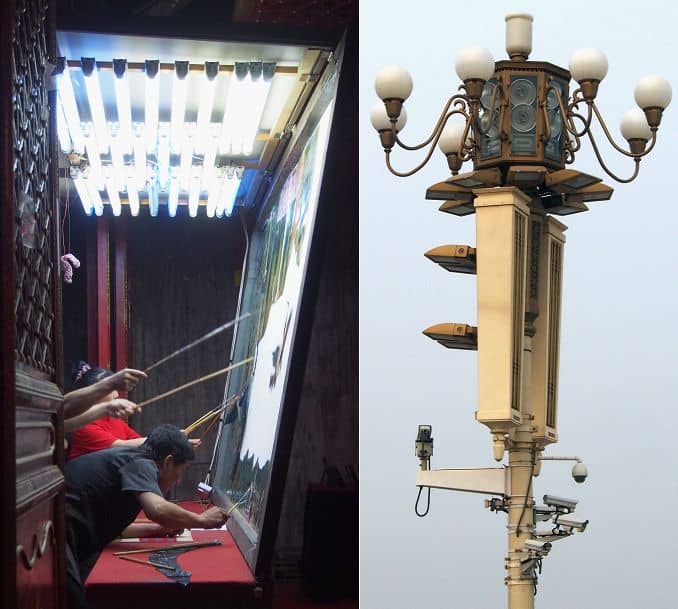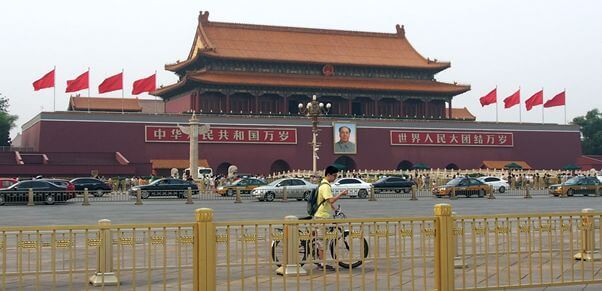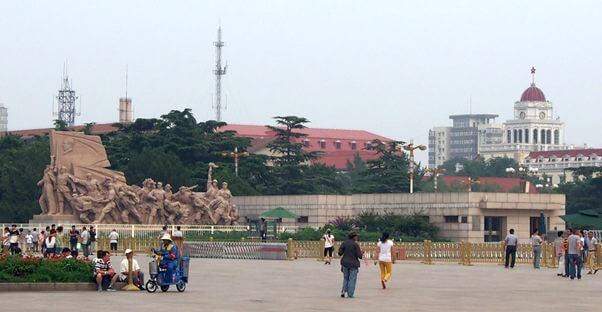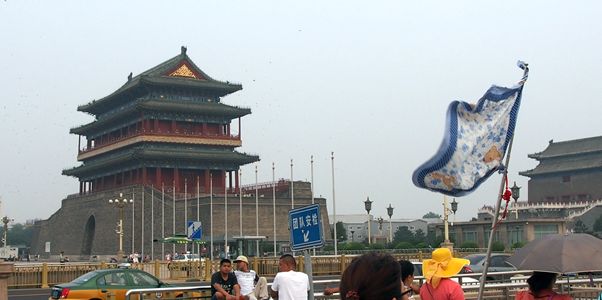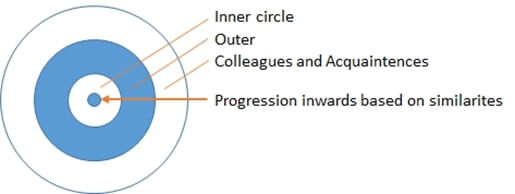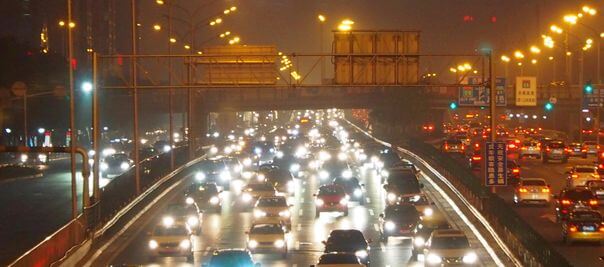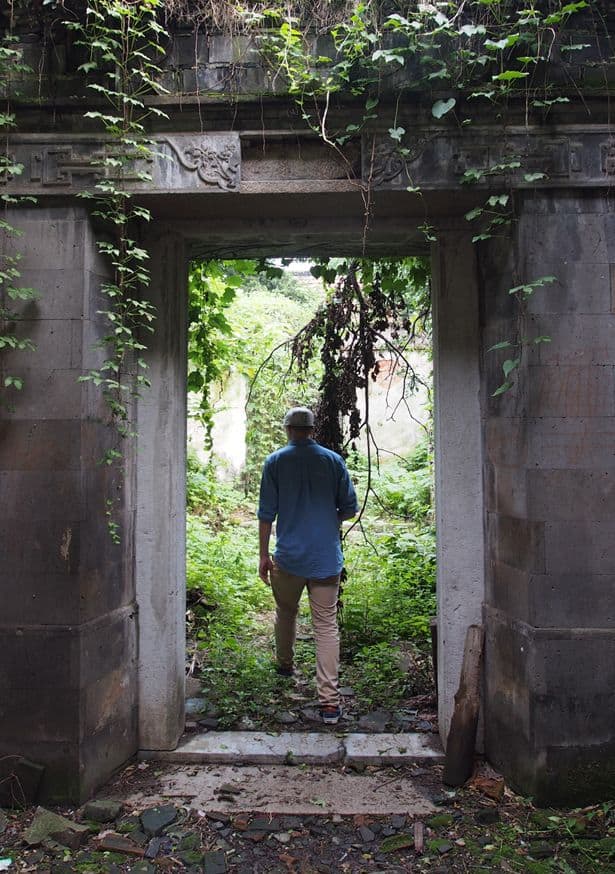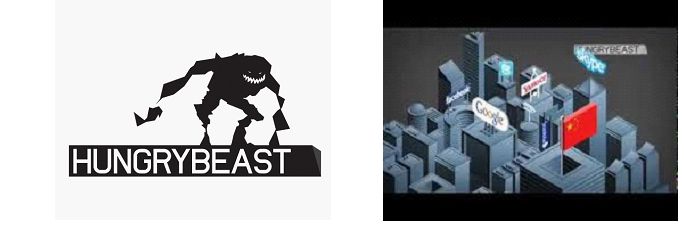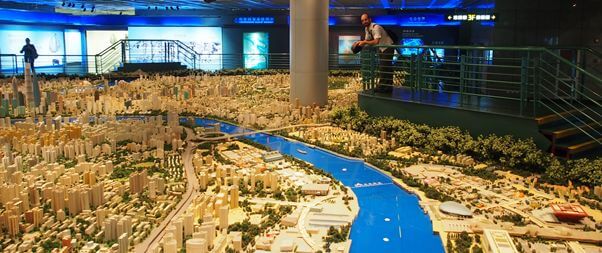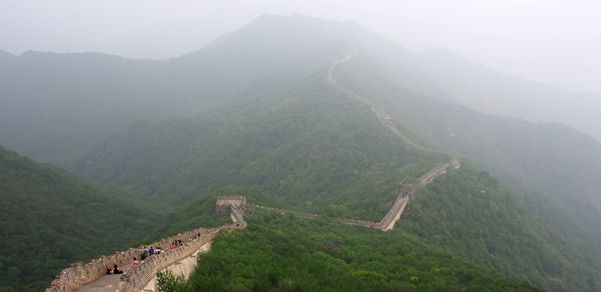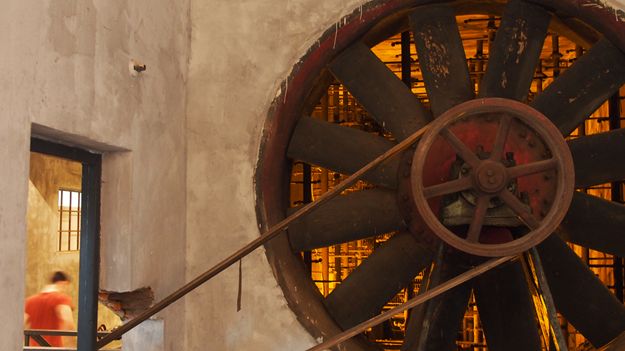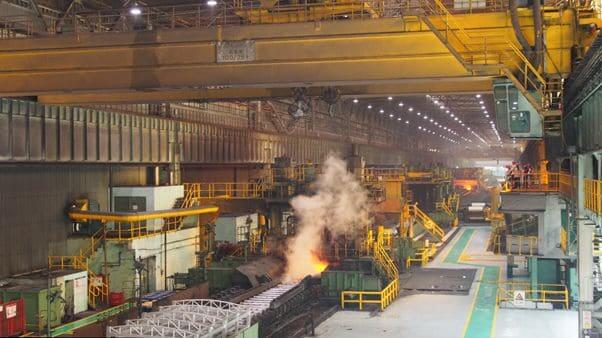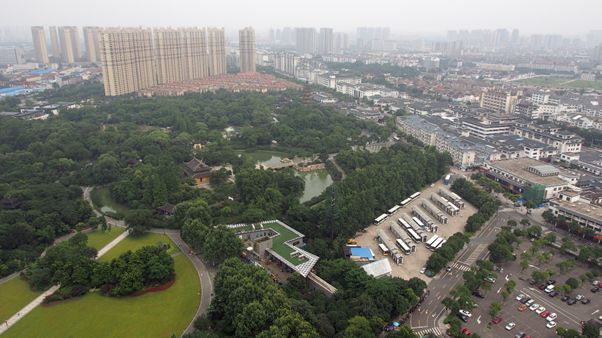Discovering China: 开门见山 – Open door, see mountain
Chinese idiom; to see things as they are – cut to the point
Yu Hong, Concurrent Realms exhibition,
Photographed July 7th 2015 http://www.szmuseum.com
Let us journey through a story of thoughts, sights and feelings; of colours and greys, never black or white. Many arrived first hand during ten days in Beijing, Shanghai, Suzhou and Changzhou, others recounted to me and some still whispered, in all cases, no names – hearsay – a reduction of my personal ignorance and ideally a lens through which you may broaden your own perspective.
Contents
Upwards, forever
One eye is enough
Guanxi and ..
.. iSelfish
2 divided by 1 equals 6
Historical Theatre and Dynastic industrialisation
Collective ego-centrism
A troubled diagnosis
Hukou AKA Change your university, change your life
Flirting, love and children
The 50 cent club
The Magic Bus(es)
The other side of the coin
Creating Great Empires
Industrial Ghosts & The New World
The longevity of crane and pine
In closing
References
VECCI VJBP
Upwards, forever
Staggering, uncountable residential construction, from the edge of the horizon to as far back as the murky grey sky will let you see.
Taken from the train between Beijing and Shanghai, 27th June, 2015
Briefly, travelling at 300 kph on the train from Shanghai to Suzhou, towering apartment blocks clad in scaffolding and topped with cranes gave way to rice paddies, individuals and couples wading through the windrows – no sooner had five to six minutes of the journey passed (25-30 kilometres for the mathematicians amongst you) the towers rose up again.
Build it and they will come? Ghost cities? A development frenzy? All of these things were spoken within my group, though it seems the only facts I could discern where that due to the loss of its textile industry and generally its output as a manufacturer, established residential buildings in the Tier 3 city we visited, Changzhou, where emptying at a rate of knots, yet house prices were not lowering with the lack of demand.
Coupled with this, new construction in the surrounding areas was going on at a rate my brain fought back against considering even possible, let alone normal.
Whilst an Australian construction engineer talked to me of the low quality foundations that were employed, occasionally causing these buildings to physically fall over – “Every year, new buildings in China total up to 2 billion square meters … but our buildings can only stand 25 to 30 years on average” – Qiu Baoxing, vice-minister of housing and urban-rural development (Short-lived buildings create huge waste, 2010) – I see the construction based economy in general transition to one of domestic consumption and services.. “On a basic level, it was inevitable that the Chinese growth rates of the past three decades, which averaged 10% a year, would wane … Growth of 7% this year for China would generate more additional output than a 14% pace did in 2007.” (Why China’s economy is slowing, 2015)
“..on another level, the focus on the slowdown seems almost myopic. China joined an exclusive club last year: its economic output exceeded $10 trillion, making it only the second country to achieve that feat (America reached this level in 2000) … the economy today includes more labour-intensive services than in the past, China is doing even better at creating new jobs: it added 13.2 million urban jobs last year, compared with 12 million in 2007..” (China’s slowdown: From a very big base, 2015)
One eye is enough
Traditional Chinese Shadow Puppet theatre (above and below left)
In Lao Tse tea house, next to Tiananmen Square, a parable of unstoppable greed and ultimate demise played out in ancient form – when fortune favours you, is it right to pressure and cajole for more or best to accept and enjoy? Karma, Confucianism, materialism, Communism, capitalism, Buddhism – so many ism’s and all available to witness in a day touring China.
Lighting towers adorned with surveillance equipment in Tiananmen square (right)
Looking towards the Imperial Palace from Tiananmen square
Workers Statue inside Tiananmen square
Zhengyangmen – “Gate of the Zenith Sun” or “Beautiful Portal” – remainder of Imperial City Wall
Guanxi and ..
Told to us by a professor at Skema business school who was working on ‘Updating the Guanxi Model for Contemporary Chinese Business’, the traditional model of the system of favours generated through personal interactions amongst people.
For those whom this is a new term, Guanxi is used almost like a currency that flows below, around and above most interactions, arguably to the detriment of a rationale, merit-based system of awarding contracts or work.
It is generated through gifts of time, money or support in order to hold favour with others and these favours are not for immediate repayment, maybe months, years or even decades can transpire – in all things, the smartest Chinese play the long-game.
Referencing the traditional model (above) the professor detailed the inner and outer circles, explaining that the inner circle, generally only joinable through marriage, was no longer possible to integrate to for the majority of people, since China’s transition to the one child policy.
In the professors’ case of having fix or six siblings, the inner circles were reasonable to get into – these days, not so much.
.. iSelfish
‘I’ – notice it’s in capitals, even if ‘I’ put it in the middle of a sentence? Apparently English is the only language that has this. In Mandarin, the closest approximation to I roughly translates as selfish – the entire concept of I doesn’t exist in the language, thus on the premise we create our reality through the language we use, ‘I’ to the 1.6 billion Mandarin speakers of the world is a concept far removed, even negatively considered it could be said.
“.. There are always individual differences of personality within any broad cultural group. Ignoring someone’s personality and their subcultural group memberships runs the risk of stereotyping them by saying, in effect: “All Australians are…” or “All Malaysians are…” Statements of this kind are far too sweeping and very likely to be proved untrue when you get to know the person..” (Byrne, 2013)
Collectivist at the far right of the scale – China, Individualist on the far left – Australia. This is obviously manifest when travelling with a group of 10 or so early 20’s Australians through Asia; no cohesion in group movement, a general meandering of transit and arrival.
At rest, the group usual forms into a circle, personal space evenly distributed, no one touching, please, thank you and apologies for perceived or potential intrusions into another’s’ ‘personal space’ – the theoretical, heavily reinforced and relatively palpable bubble of the self, surrounding us all.
“Wow she is direct – she just tells us what to do” comes up frequently in relation to one of our Chinese tour leaders; “Get on the bus. Get off the bus” – “A please would be nice” – for whom and why? Your bubble of self which perceives this interaction through a lens from a different continent?
“.. The first step in dismantling wrong attributions is to become aware that the process is normal and almost inevitable. This requires a skill often called externalisation, the ability to stand outside yourself and look at things objectively, rather than subjectively. (Byrne, 2013)
Space is at a premium in China, things happen quickly and as we observed when getting a group booking passage through a busy railway station ahead of several hundred waiting people, one of our Chinese students remarked ‘this is trouble, in China everyone is equal, this is seen as racist and they are upset’.
Crowds are tightly controlled, things are done in stages and when the doors open the human flood commences – you can be swept along, almost running, or get the hell out of the way – simple.
Also, do not be late. The Chinese aren’t, despite the horrendous traffic of Shanghai and Beijing, in business punctuality is key.
N 4th Ring Rd Middle taken from Olympic Park in Beijing
2 divided by 1 equals 6
A further ramification of the one child policy was expressed by an employer “I have kids here in their first job on low wages, first year out of University, and they have new cars and iPhone 6’s, I don’t even have an iPhone 6 – how is that possible?”
Two parents and four grandparents was his answer.
Further insights came when the same man expressed his belief in the Chinese ethos of “If I earn $1 more I move” related to staff retention.
Historical Theatre and Dynastic industrialisation
A door inside a historical protected village near Taihu lake
Mao Tse Dong – founding member of the Communist Party of China (CPC)
He led the Long March, a series of treks covering 9,000+ kilometres over 370 days through “some of the most difficult terrain of Western China” (Long March, 2014) – a military retreat for 86,000 members of the Mao faithful, escaping from the surrounding Nationalist forces.
Without having the Japanese invade in 1937 and the Guomindang Nationalists calling a truce with the CCP to repel the invaders, they were poised to exterminate the communists, of which only 7,000 survived, a loss of close to 80,000 souls from the initial group 12 months earlier.
In part, I was told for this reason Mao said to the Japanese not to worry about war reparations in the same way that Germany provided to Europe in the aftermath of World War II, as I heard it “without Japan, the infant that was Communist China would never have survived – for this we owe the Japanese a debt” – contrast this against the massive anguish associated with the conduct of the Japanese throughout China and what I’ve read via Iris Chang in “The Rape of Nanking” – never black or white, grey all round.
Having never dug into Chinese history beyond cursory documentaries, I held Mao in the regard that he had single headedly lifted China from a nation of rice and under international duress, opium farmers, to their present state. What surprised me was learning of the man pictured, Sheng Xuanhuai.
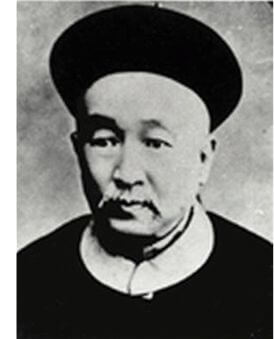
Sheng orchestrated the industrialisation of China “actively advocating using Western technology in saving the country from destitution” pre 1900 – by 1893 controlled the China Merchants’ Steam Navigation Company, established the Imperial Telegraphy Administration, took over the Hangyang ironworks and related mines 1896, controlled the newly created imperial railway administration and in 1897 founded the Imperial Bank of China, the first Chinese bank modelled on Western banking system.
As the Qing dynasty survived until 1911/12, the ten year lead up was filled with uprisings and bitter fighting, mainly orchestrated by a man named Sun Yat Sen from a position of exile in Japan and then the United States.
As the records go, the Xinhai Revolution broke out at Wuchang on October, 10, 1911, bringing down the child emperor, Puyi, ending the imperial period of Chinese History.
From this, Sun Yat Sen was elected the “provisional president” of the new-born Republic of China, “However, the northern warlord Yuan Shi-kai had been promised the presidency if he could pressure the Puyi into formally abdicating the throne” – with Puyis abdication on February 12, 1912, Sun Yat-Sen stepped aside on March 10 to Yuan Shi-Kai, though it became apparent Shi-Kai was aiming at establishing a new imperial dynasty.
A legislative assembly was called in Beijing in May of 1912, evenly split between supporters of Sun Yat-Sen and Yuan Shi-Kai – at this event, Sun Yat-Sen’s allies formed the Nationalist movement named the Guomindang.
Unable to prevail at the ballot box, Sun “organised a force to challenge Yuan’s army of 80,000 though was unsuccessful, once more fleeing into exile in Japan.”
From here, Sun Yat-Sen “reached out to local and international communists” and drew in the burgeoning Communist Party of China (CPC)”.
With the help of Soviet leader Vladimir Lenin, a military academy was established and Chiang Kay-shek was appointed commandant of the new National Revolutionary Army and its training academy.
In short, with Sun Yat-Sen dying at 58, he brought together the Nationalist KMT and the Communist CPC, thus he is commemorated amongst both groups.
After the Japanese surrender in 1945, the Chinese Civil War resumed in 1946.
The Chinese Communist Party (CCP) led by Mao Tse Dong defeated the Guomindang Nationalists in 1949, where they fled to Taiwan and Chiang Kai-Shek led the country under a mix of martial law and aspirations to retake mainland China until his death in 1975.
Still with me?
From here, my understanding of two ‘major’ events have been front of mind regarding China.
Firstly “the Great Leap Forward” –
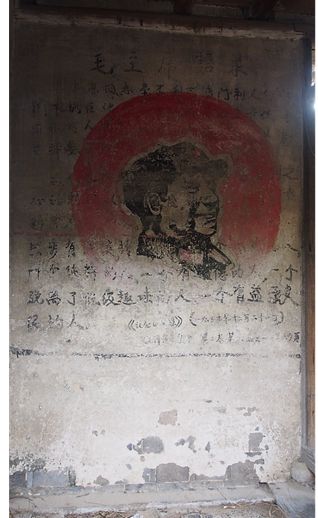
– a national campaign of industrialisation undertaken from 1958 to 1960, which was a transition from rural farmers into backyard steel makers, a project that failed abysmally to make industrial grade steel and resulted in a massive proportion of the population to starve to death, some 20 million estimated by Britannica, between 1959 and 1962.
During this period, Mao Tse Dong was succeeded in 1959 as chairman of the People’s Republic by Liu Shaoqi, closely supported by Deng Xiaoping.
Deng Xiaoping would go on to teeter from leadership to the brink of exile and destruction throughout Mao’s ongoing years, until finally coming back to power and leadership of China after Mao’s passing.
From my time visiting China, a source revealed to me a precursor to the Cultural Revolution, of which my very limited understanding as the ‘second major event’ was an attempt to remove China’s dynastic roots through a collective attempt at book burning and symbol smashing, was a period of Liu Shaoqi focusing on introducing capitalist elements and pro-Western policies, which were considered very successful by most accounts.
It was this trajectory towards Western ideals that compelled Mao to play what I now understand as the most effective game of deadly political chess likely to have ensued throughout human history.
By closing schools nationally and tasking the youth with ‘taking the currently party leaders to task for their embrace of bourgeois values and lack of revolutionary spirit’ (Cultural Revolution, 2009), they went on to form paramilitary groups called the Red Guard, attacking China’s elderly and intellectual population.
During this period, Lin Bao was elected president after the youth movement jailed Liu Shaoqi and many other leaders, Shaoqi dying in prison in 1969.
As several cities in China drew close to ‘the brink of anarchy by September 1967’ – Mao had Lin Bao ordered the army to quell the Red Guard and drove the urban members into rural locations where the movement declined.
With Lin designated Mao’s successor, he implemented martial law in response to a situation of border clashes with Soviet troops. This demonstration of a “premature power grab … disturbed Mao” (Cultural Revolution, 2009) and with the help of a gent named Zhou Enlai, China’s premier, Mao split the ranks of the Chinese Government. Lin died in an airplane crash in September 1971, apparently attempting to escape to the Soviet Union, from which Zhou took greater control of the government.
From here Zhou revived the Chinese educational system and “brought numerous former officials to power”. Being diagnosed with cancer in 1972, the same year Mao had a stroke, both leaders put their support behind Deng Xiaoping, who struggled against a group known as the Gang of Four.
The Gang of Four “convinced Mao to purge Deng in April 1976, a few months after Zhou’s death, but after Mao died that September, a civil, police and military coalition pushed the Gang of Four out.”
In 1977 Deng regained power, maintaining control over the government for the next 20 years.
Collective ego-centrism
Remember our professor of recent discussion? He proposed an update to the model of Guanxi, saying the true effect of the Cultural Revolution and the one child policy was a revolution of values, from that of a collectivist society to one of deeply ingrained distrust, class struggle that ripped out any links and left survival of the self above all others.
A troubled diagnosis
The legacy of the Cultural Revolution was further explained to me in that having a rationale for discussion was not required – simply a reason was enough for conflict. ‘This person must be brought down’ – ‘why?’ ‘because they …’ – the reason does not need logical underpinning, it exists because it is spoken. Several days after first hearing this, I had a discussion translated to me about a record low number of enrollments for medical students.
The first side to this is that nursing staff in China take care of a patient’s medical care, in the sense of administrative functions and provision of the treatment plan the doctor sees fit.
In relation to patient care in a general sense; preparing food and eating, bathing, getting to the toilet, the general day to day personal requirements that Australian nursing staff facilitate entirely – these are taken care of by a family member or private nurse brought in to support the person in hospital.
Now back to our reason vs rationale, I was told that doctors are being attacked and sometimes even killed by family members of patients that do not survive their treatment, irrespective of the nature of injury or the likelihood of survival. If Doctors are unable to ‘cure’ a patient, the result of their inability is seen genuinely as a life or death situation, not for their patient but for themselves.
How widespread this is or to what percentage of the population it applies I have no idea, though it was of concern and merited discussion amongst people I consider to have a sizeable perspective and equivalent responsibility to handle civil matters for the citizens of China.
Hukou AKA Change your university, change your life
I was advised Chinese high school education focused absolutely 0% on work skills, the singular aim was gaining a high mark to access universities. Gaining entry to a university brought with it legal geographic transition from your place of birth to the University.
Case in point, one of our travelling companions came from a district of 41 million people, to which 90 students annually were accepted to enter Fudan University and therefore legal transit to Shanghai.
“Hukou” is ‘a Household Registration system to control the movement of people between urban and rural areas’ – implemented in 1958 by the Communist party, though Wikipedia has it that “Family registers were in existence in China as early as the Xia Dynasty (c. 2100 BCE – 1600)”
As far as I can find, “On December 4, 2014 the Legal Affairs Office of the State Council released for public comment a draft residence permit regulation proposing to abolish the hukou system in small cities and towns, while retaining substantial restrictions in large metropolitan areas, and gradually easing restrictions in medium-sized cities.” (State Council Releases Hukou Reform Proposal, 2014)
Speaking of celebration, what do you think is going on below?
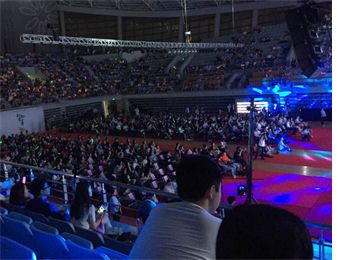 It’s not The Voice: China, it is in fact the graduating ceremony for University students, where the best 65-70 academic performers are presented in full formal attire, do laps of the red carpet and then get interviewed on stage across three to four hours, whilst singing and dancing for their graduating year.
It’s not The Voice: China, it is in fact the graduating ceremony for University students, where the best 65-70 academic performers are presented in full formal attire, do laps of the red carpet and then get interviewed on stage across three to four hours, whilst singing and dancing for their graduating year.
It is essentially a celebration of the highest achievers, the attendee who took the above photos, admitting to me he shed a tear hearing how strong was the commitment and journey these fledgling adults had gone through to that point.
Flirting, love and children
The one child policy is being said to lessen in its restriction, though for Government officials – party members – a second child will result in the loss of employment. Additionally, it is possible to pay the fine should you have a second child – whilst money can’t buy you love, it can pay for the kids.
On the topic of love, did you know the Chinese don’t know how to flirt? Or for those that do, they aren’t doing it in China. It seems public displays of affection – to make eyes at someone, to initiate a romantic engagement – these are not done and therefore never practiced – the display would be seen as disgraceful.
In the case of our tour leader, he sang a song for his future wife and that was that. As marriage goes, a cohort of young Chinese ladies expressed the factors they go for as wealth. The very first step itself is that for a man in China to marry, he must provide a house (apartment) and car for her, in which case her parents will pay for the wedding and furnish the apartment.
For the poorer males in society “Many Of China’s Bachelors Can’t Afford To Get Married” (International Business Times, 2014).
The 50 cent club
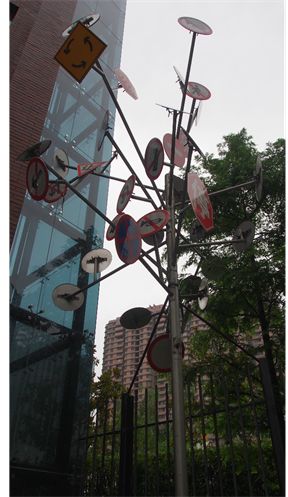
Deep in the heart of the M50 art district, a centre piece of ex-industrial manufacturing turned into an emerging and established artist residence of Shanghai, a new character in the Mandarin language was growing in popularity.
It represented ’50 cents’ or half a yuan, said to be the cost of every single message put to the internet, in order for the central government to monitor and where they feel necessary, delete or ‘adjust’ the communication.
According to researchers at Harvard University “..an estimated 250,000 to 300,000” carry out the work whilst “The size and sophistication of the Chinese government’s program to selectively censor the … views of the Chinese people is unprecedented in recorded world history” (Censored, 2013).
View ABC’s Hungry Beast episode “The Great Firewall of China”
via https://www.youtube.com/watch?v=dWfUOG0EA9w
Click to view ABC’s Hungry Beast episode “The Great Firewall of China”
The Magic Bus(es)
Another element of China is that in-person protesting is illegal. Visiting the Shanghai Planning Exhibition, a genuinely wonderful show of urban development and growth, our guide asked us to avoid taking any printed material on the street as a large police presence with lines of empty coaches were at the ready, waiting to separate groups and transport individuals.
Transport buses
Shanghai planning exhibition
The other side of the coin
Before you give a quick snort and talk up the benefits of democracy, Australia has recently passed a raft of legislation that puts us behind a similar monitoring platform and beyond that, every developed nation is participating in monitoring that unless you have sat and watched Citizenfour, a film I put as required information for people of the world, or work directly in a national security office, you likely have no idea about.
 Unfortunately advertised as ‘Edward Snowden’ the man, it is a story about societies and individuals, bringing investigation and damning revelations to government monitoring in all first world nations – https://citizenfourfilm.com
Unfortunately advertised as ‘Edward Snowden’ the man, it is a story about societies and individuals, bringing investigation and damning revelations to government monitoring in all first world nations – https://citizenfourfilm.com
Creating Great Empires
During an evening meal I was taken through (by a member) how the Communist Party of China selects students at 15 years old that show high intellect, supports them through school and into junior roles of Government.
From here they are tasked with working in and then governing poorer regional areas without any knowledge of ongoing promotion. This enables people to prove themselves as ‘for the people’ rather than the office.
Those who shown merit are transferred to Beijing and sent around the world to study finance, industry and technology, town planning, science, essentially the best the world has to offer before coming back to China.
A balancing act exists as such, apparently a recent edict for some in government of a certain age who had not been promoted was that they were to stay in their positions, ensuring the future leaders of the party were in the prime of their ‘leadership lives’.
The nature of China is Communist Party officials move lockstep with vast amounts of industry, a party official being the over-riding force above every CEO for state-owned companies.
During our visit to COFCO, the China National Cereals, Oils and Foodstuffs Corporation, a truly immense organisation – I enquired as to gender equality amongst senior management and was pleased to find out the CPC member was female that worked next to the COFCO CEO.
Mutianyu – Great Wall of China – photographed June 25th 2015
Industrial Ghosts & the New World
Inside Canal 5 Creative Campus, Changzhou, Photographed July 4th, 2015
During my travels I was very privileged to attend a dinner with the Congress Chairman of one of the Districts North West of Shanghai. I posed him two questions, to which he answered as being given mandates from the Central Committee;
Q. What is your biggest imperative?
A. Supporting entrepreneurship to transition our legacy manufacturing and industrial capacities into new businesses and services.
Q. What is the biggest obstacle to that?
A. Changing the culture to be one of long-term creation rather than replication and cheaper for the short term
View across Huangpu River, Shanghai
The longevity of crane and pine
Visiting the Song He Lou restaurant was a treat, one of many in China, this one with over 200 years of history since its establishment. In its name, I analogise the nuance of the Chinese perspective in that Song He Lou ( 松 鹤 楼 ) comprises the characters of Crane and Pine – these together mean long-life, thus, two separate things combine to have a higher meaning.
“.. Three principles are at the heart of the Chinese idea of The Middle Way. The first is change. Reality is seen as constantly evolving, so there is an endless need to adapt. The second is the principle of contradiction, or paradox. Change continuously creates oppositions and paradoxes: old and new, strong and weak, dark and light, good and bad. These can exist in everything. But opposites need not clash and undermine each other. They can complement and complete each other. The third principle is relationship. Nothing exists in isolation. There is always a network of complex connections and linkages among things, issues, events and people.” (Byrne, 2013)
In closing
A fortnight in Beijing, Shanghai, Suzhou and Changzhou visiting the Great Wall, COFCO Corporation, Baosteel Group, Blue Scope Steel, Google, Fudan University, SKEMA Business School, Bangde Institute, Trina Solar, HIGER BUS Company Limited, Canal 5 Industrial Park and the Suzhou Industrial Park Administrative Committee..
..seeing the Silicon Valley of the East in Suzhou with 26 universities in their Higher Education Town, commenced 12 years ago and 90% complete – the dedicated Nano-tech and Nano-Bionics laboratories, turning Shanghai into the ‘New York of Asia’, the $8 AUD 400 kph airport train that takes 7 minutes past the GE Factory?
I see a giant, unfurling it’s intellectual and human capacities to grip the systems of Western consumption with a fury unimaginable in its entirety. The costs of this process are already known to us, so how will China develop to balance the goals of capitalism with the requirements of a healthy society and planet?
Baosteel 2 kilometre long Hot Rolling Mill – photographed June 30, 2015
able to produce over 6 million tons of hot-rolled strip per year
View from Tianning Temple, Changzhou, photographed July 4th 2015
References
Australians flock to Melbourne as Victoria becomes Australia’s fastest growing state http://www.smh.com.au/federal-politics/political-news/australians-flock-to-melbourne-as-victoria-becomes-australias-fastest-growing-state-20150625-ghxj27.html [5 August 2015]
Taxpayers hit with $339 million bill as Government strikes deal to scrap East West Link
http://www.abc.net.au/news/2015-04-15/victorian-government-to-pay-339-million-east-west-link-contracts/6393536 [5 August 2015]
Long March – Chinese History
http://www.britannica.com/event/Long-March [27 July 2015]
Short-lived buildings create huge waste
http://www.chinadaily.com.cn/china/2010-04/06/content_9687545.htm [5 August 2015]
Sun Yat-Sen
http://asianhistory.about.com/od/modernchina/p/Sun-Yat-Sen.htm [22 July 2015]
Cultural Revolution
http://www.history.com/topics/cultural-revolution [24 July 2015]
State Council Releases Hukou Reform Proposal, 2014
http://english.caixin.com/2014-12-05/100759833.html [29 July, 2015]
Many of China’s Bachelors Can’t Afford To Get Married
http://www.ibtimes.com/many-chinas-bachelors-cant-afford-get-married-pre-wedding-gifts-get-more-expensive-1562982 [1 August 2015]
How Censorship in China Allows Government Criticism but Silences Collective Expression
http://gking.harvard.edu/files/censored.pdf [5 August 2015]
Chang, Iris 1997, The Rape of Nanking, Basic Books USA
Byrne, Margaret 2013, Business Success in the Asian Century, UGM Sydney
VECCI VJBP
The Victorian Employer’s Chamber of Commerce and Industry (VECCI) run the Victoria Jiangsu Business Placement (VJBP) program which they describe as “supporting your China strategy by giving you first-hand insight into what successful businesses are undertaking and achieving in China. It is a state-based program developed by the VECCI in collaboration with the Jiangsu Federation of Industry of Commerce with support from the Victorian Government and City of Melbourne“
I recently filmed and produced a short summation video of their participants have a watch and if China is on your radar, consider getting in touch with the Victorian Chamber.






